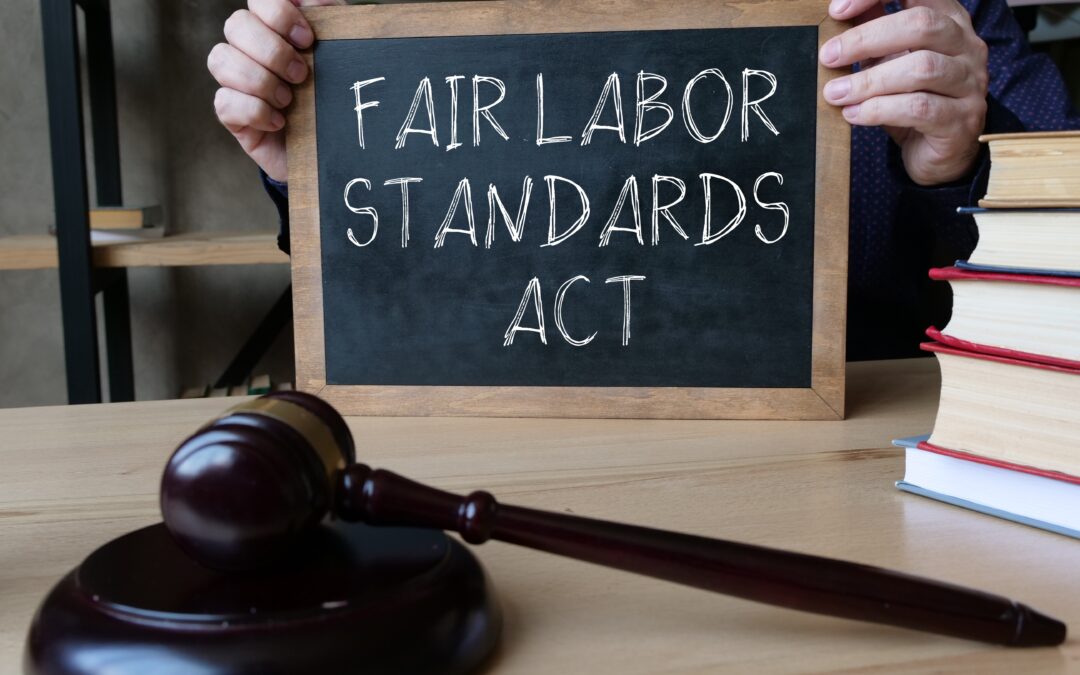Note: This does not apply to employees working in Washington State as there are already greater salary thresholds that must be met in addition to the duties test. If you have any questions on a Washington State employee, please reach out.
The federal Fair Labor Standards Act sets forth the criteria for designating an employee’s position as exempt (from overtime compensation as well as meal and rest period requirements), or non-exempt (eligible for overtime compensation). Some states (including Washington), have requirements that exceed the standards set at the federal level, therefore, this change does not apply.
At the federal level, in order to be classified as exempt, the position must generally meet all of the following criteria (Note: All three of the criteria must be met in order to be classified as exempt.):
- An employee must be paid a predetermined and fixed salary that is not subject to reduction because of variations in the quality or quantity of work performed (referred to as the “salary basis test”); and
- The amount of salary paid must meet a minimum specified amount or a minimum salary threshold amount (currently that amount is $684 per week or $35,568 per year), (referred to as the “salary threshold test”); and
- The employee’s job duties must primarily involve executive, administrative, or professional duties as defined by the regulations (referred to as the “duties test”).
Effective July 1, 2024, to maintain an employee’s current exempt status, they must:
- Be paid a fixed salary; and
- That salary must meet or exceed a minimum salary threshold amount of $844 per week or $43,888 per year; and
- The employee’s primary job duties performed must meet the executive, administrative or professional duties (referred to as the “duties test”). Note: duties test remains unchanged.
Further, this rule change will increase the minimum salary threshold again on January 1, 2025 to $1,128 per week or $58,656 per year.
The federal FLSA also currently provides for a special rule or exemption referred to as the highly compensated employee (HCE) exemption. Currently, under this rule, employees who meet the following criteria may be deemed as exempt:
- The employee earns a total annual compensation of $107,432 or more, which includes at least $684 per week paid on a salary or fee basis;
- The employee’s primary duty includes performing office or non-manual work; and
- The employee customarily and regularly performs at least one of the exempt duties or responsibilities of an exempt executive, administrative or professional employee.
Effective July 1, 2024, the HCE exemption total annual compensation amount will increase to $132,964. On January 1, 2025, that total annual compensation amount will increase to $151,164.
Lastly, under the new ruling, the thresholds for exemptions will increase automatically every three years, beginning July 1, 2027.
Recommended Action:
- Employers should begin reviewing exempt employee’s salary threshold for compliance with these new minimum standards which will take effect on July 1, 2024. Decisions will need to be made if the salary is increased as of July 1, 2024 to continue to pay those employees affected as an exempt employee or to change their status to non-exempt and eligible for overtime as of that effective date. Don’t forget, if you are changing an employee’s status, you must communicate that change to that employee. Need help with that communication, contact JB Consulting Systems for assistance.
- Be prepared to address this minimum salary requirement again on January 1, 2025, and again every three years, starting on July 1, 2027.
- It is important to prepare for these changes; however, it is advisable not to implement them until the official effective date. Please note that the regulations are currently subject to a legal challenge, which may result in changes to the effective date or adjustments to the proposed salary thresholds. Updates on this legal matter will be provided as they become available.
As stated earlier, the minimum salary threshold for exempt employees in WA State is higher than that outlined by the federal FLSA. To review the currently WA State salary threshold requirements, review to the implementation schedule published by the Washington State Department of Labor & Industries.
For expert guidance on this, please contact us today and one of our consultants can help prepare for these changes.
Sources:

